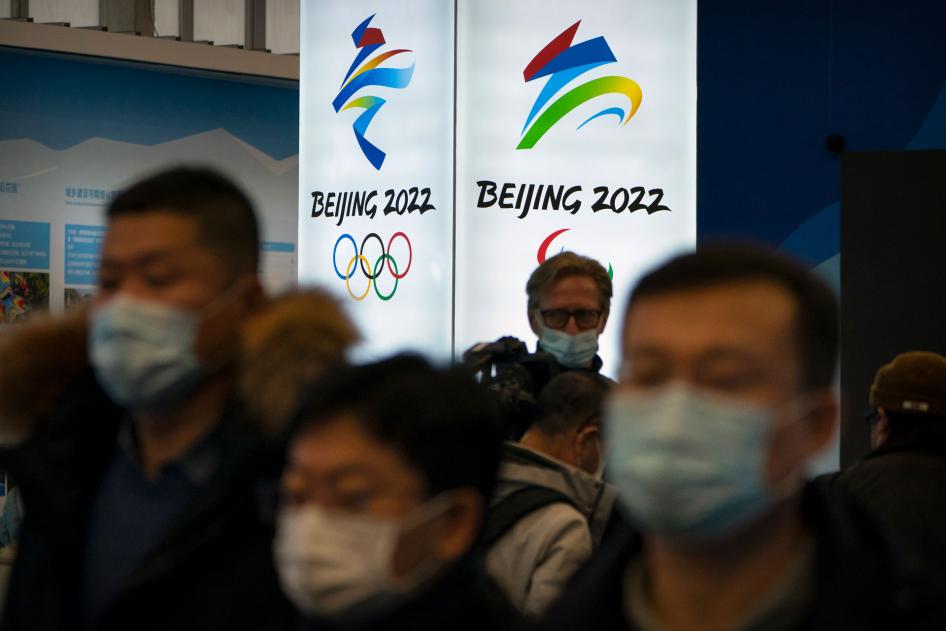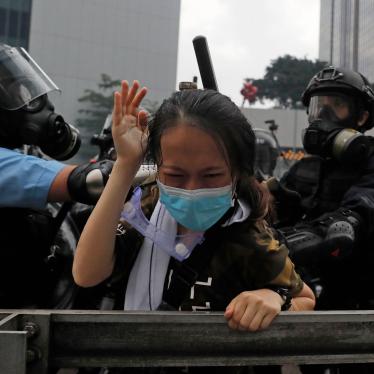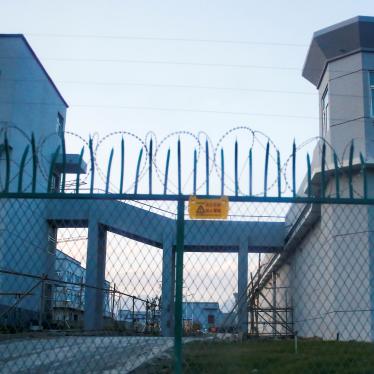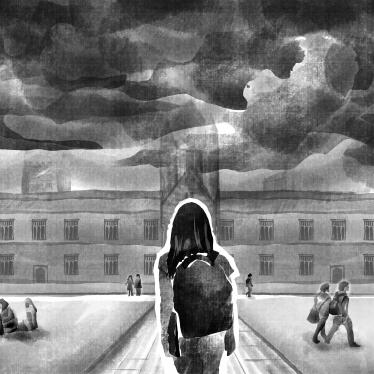The snow will undoubtedly be deep for the 2022 Beijing Winter Olympics, but that doesn't mean we should let Beijing use the Olympics to do a snow job on us and whitewash its abysmal human rights record.
People across China are enduring the most severe repression since the 1989 massacre that ended the Tiananmen Square pro-democracy movement. Calls are mounting for a boycott. The Chinese government is even threatening retaliation against any government that engages in a boycott.
Yet, few governments are willing to exercise that nuclear option, largely because it would hurt the athletes who have spent years training for the event. Still, short of a boycott, there are important steps that can be taken to prevent Beijing from turning the Olympics into a glittering façade for a ruthless police state.
When Beijing hosted the Summer Olympics in 2008, many people predicted that the Games would help ease the country open. In fact, the Olympics became an excuse for a crackdown. The Chinese government was so determined to avoid political embarrassment that it refused to allow anyone to protest even at the three sites that it had been pressed to designate for that purpose.
Since then—and especially since Xi Jinping came to power in 2013—the human rights situation has deteriorated. Today, no one seriously claims that the Olympics will make it better.
More than 1 million Uyghur and other Turkic Muslims have been detained in the northwestern region of Xinjiang until they renounce Islam, their language and their culture. Some of those who "graduate" from what Beijing euphemistically calls "vocational education and training centers" are shipped off for forced labor, tainting export supply chains. Children of detained parents are sent to schools where they are taught to become Mandarin-speaking, Communist Party-respecting "model" Chinese citizens.
Other ethnic minorities—foremost Tibetans—are also treated ruthlessly as authorities trample their religion, culture and language. A "national security" law imposed on Hong Kong in June is being used to crush the territory's freedoms and undermine its rule of law. Throughout the country, critics of the government are silenced, journalists are intimidated, the internet is censored and civil society struggles to survive.
No wonder Beijing wants to change the subject. The pomp and drama of the Olympics, played out in sleek new arenas, are the perfect diversion. Yet it is up to us to determine whether the Olympics glorify the Chinese Communist Party or spotlight its repression.
To begin with, nations may send their athletes, but there is no reason to legitimize the Chinese government by sending senior government officials to the festivities. The third political officer from the embassy will suffice.
Similarly, cultural dignitaries—the kind whom Beijing would love to exploit in an "all is well" message—should stay away. The aim should be to avoid giving Beijing any chance to portray visitors of providing a stamp of approval.
Corporate sponsors who typically mount major tie-in publicity campaigns should have second thoughts. Do they really want to tarnish their image by linking it to a government that so cruelly represses its people? Do they really want to risk the consumer backlash that such moral indifference could engender?
Sponsors that plan a physical presence in Beijing will face an additional challenge—one common to any company that exports from China. Because the Chinese government refuses to allow free and independent labor inspections, there is no way to know whether a company's supply chain is tainted by forced Uyghur labor. Several auditing firms have given up even trying. When forced labor is so common and monitoring so difficult, there can be no comfort in ignorance. It is a public relations disaster waiting to happen.
As for the broadcasters, beyond televising the Olympic competitions and the usual fluffy feature pieces, will they show the darker side of Beijing's rule? Limiting programs to satisfy the thin-skinned autocrats in Beijing will make the broadcasters complicit in extending the Chinese government's censorship to the rest of the world.
Athletes in Beijing and beyond may want to show their sympathy for the people facing persecution in China, as athletes worldwide often have done around issues of social concern. Taking a knee has become a common way for athletes to demonstrate support for racial justice.
Many recall the Black Power salute of African American medalists Tommie Smith and John Carlos at the 1968 Mexico Summer Olympics. Athletes competing in Beijing might simply wear the light blue of Uyghur protests or the yellow of the Hong Kong demonstrations.
Rule 50 of the Olympic Charter currently prohibits political protests at Olympic venues, but that affront to freedom of expression, imposed by the International Olympic Committee, should come under pressure to reform ahead of Olympic Games held in the midst of such a profound human rights crisis.
Even outside of formal Olympic venues, athletes, coaches, spectators and journalists will confront the Chinese government's highly intrusive, high tech surveillance state. The rights to privacy or freedom of expression are irrelevancies in the minds of Chinese authorities as they snoop on private conversations and censor any hint of public dissent. But visitors have one big advantage over the people of China: any effort to silence them is likely to be met by global outrage. That provides an added reason to speak out.
In the end, the ability to shape the image of the Olympics rests with all of us. Social media is our vehicle. We are limited only by our creativity in reminding people of the grave crimes that Beijing is committing against the people of China.
When skiers are strapping on their boots, let's remind people of Chinese torture victims being strapped into "tiger chairs." When figure skaters use their routines to artistically express their cultures, we can remind people of the many cultures that Chinese authorities are suppressing—in Tibet, Inner Mongolia, as well as Xinjiang. Dangerous falls on the slalom could be a reminder of the political prisoners who are denied access to medical care.
The point is, as we enjoy the Olympics, we should remind the world of the people in China for whom the Olympics have not been, as the International Olympic Committee claims, "a force for good."
The Olympics are inevitably a moment of passion and drama. That is to be celebrated. But Beijing's goal is to use them as a propagandistic cover for repression. It would be in the best spirit of the Olympic values of "excellence, friendship and respect" for us to prevent that from happening.










